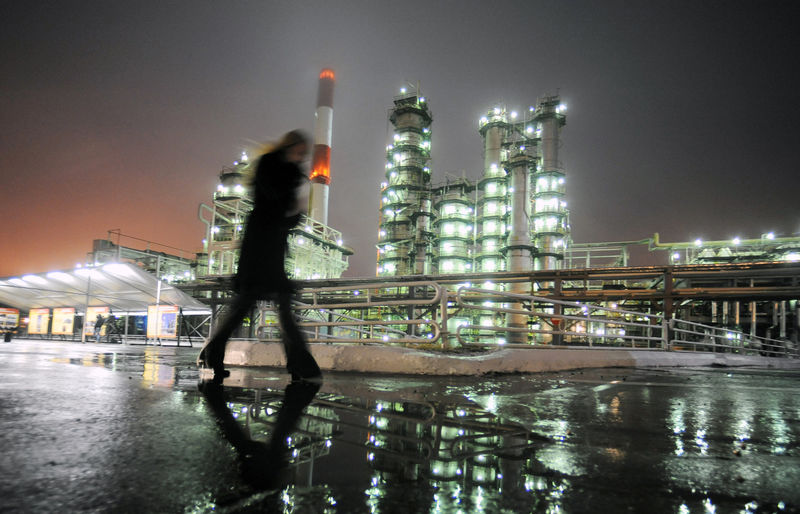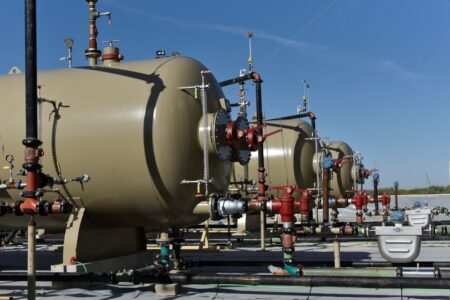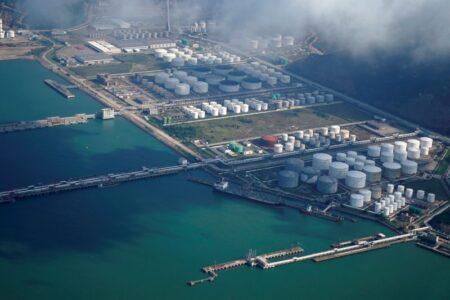By Arathy Somasekhar
HOUSTON (Reuters) – Oil prices surged 3% on Wednesday to the highest settlement in 2023, after a steep drop in stocks compounded worries of tight global supplies.
futures closed up $2.59, or 2.8%, at $96.55. It breached $97 a barrel during the session.
U.S. West Texas Intermediate crude futures (WTI) climbed $3.29, or 3.6%, to $93.68. The session high was over $94.
U.S. crude stocks fell by 2.2 million barrels last week to 416.3 million barrels, government data showed, far exceeding the 320,000-barrel drop analysts expected in a Reuters poll.
Crude stocks at the Cushing, Oklahoma, storage hub, delivery point for U.S. crude futures, fell by 943,000 barrels in the week to just under 22 million barrels, the lowest since July 2022, data showed.
“The market is being led up by storage numbers as we are getting to the minimum operational inventories at Cushing,” said Andrew Lipow, president of Lipow Oil Associates.
Stockpiles at Cushing have been falling closer to historic low levels due to strong refining and export demand, prompting concerns about quality of the remaining oil at the hub and whether it will fall below minimum operating levels.
Prices fell last week but were rallying again as markets worried about tight supplies heading into winter, following production cuts of 1.3 million barrels a day to the end of the year by Saudi Arabia and Russia of the Organization of the Petroleum Exporting Countries and allies known as OPEC+.
“Until a decision to raise production is made, the global energy market will remain tight,” Ole Hansen, Head of Commodity Strategy at Saxo Bank, said.
The tight supply was reflected in time spreads with front month Brent futures trading at a $2.28 premium over the second month, its highest since October, while on WTI futures, the front month traded at a $2.43 premium to the second month, the highest since July 2022.
WTI’s discount to Brent also hit its narrowest since late April.
“The market is overbought and a correction is definitely needed,” said Dennis Kissler, senior vice president of trading at BOK Financial.
Potentially adding to supply tightness, Russian President Vladimir Putin ordered his government to ensure retail fuel prices stabilise after a jump caused by an increase in exports.
In response, his deputy prime minister cited proposals to restrict exports of oil products purchased for domestic use.
The Federal Reserve Bank of Dallas released a survey showing oil and gas activity in three key energy producing U.S. states has been rising with the latest jump in energy prices.
(This story has been corrected to say front month Brent futures were trading at a $2.28 premium over the second month, not $42.28, in paragraph 10)
Read the full article here












